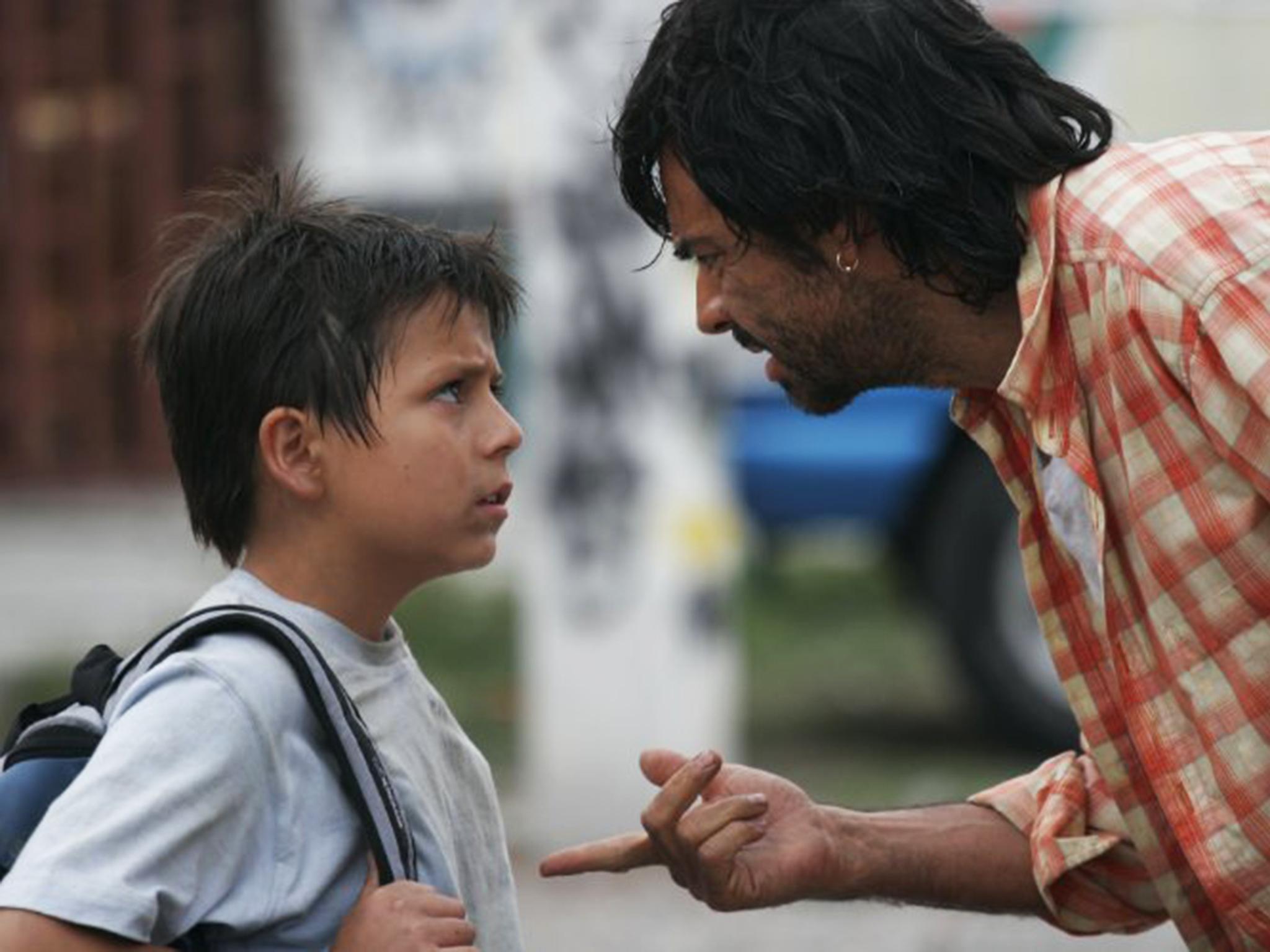Films you should watch to counter American anti-migrant rhetoric
Central American filmmakers are using cinema to address growing misinformation and misconceptions about the migrant experience

Your support helps us to tell the story
From reproductive rights to climate change to Big Tech, The Independent is on the ground when the story is developing. Whether it's investigating the financials of Elon Musk's pro-Trump PAC or producing our latest documentary, 'The A Word', which shines a light on the American women fighting for reproductive rights, we know how important it is to parse out the facts from the messaging.
At such a critical moment in US history, we need reporters on the ground. Your donation allows us to keep sending journalists to speak to both sides of the story.
The Independent is trusted by Americans across the entire political spectrum. And unlike many other quality news outlets, we choose not to lock Americans out of our reporting and analysis with paywalls. We believe quality journalism should be available to everyone, paid for by those who can afford it.
Your support makes all the difference.Anti-migrant rhetoric is not new in the United States; it has long been a staple of the Republican right and more recently the extremist “alt-right”. It was a controversial focal point in the Donald Trump campaign of 2016, with the New Yorker calling Mexicans drug dealers, criminals and rapists, and encouraging supporters to cheer his promise to build a wall – something that he has now signed an executive order on.
This migrant-baiting is increasing despite the fact that there has been a decline in migration from Mexico due to improvements in the Mexican economy, family reunifications, and the dangers of the migration journey.
What anti-migrant rhetoric also ignores is the fact that many who are still making the perilous journey from Central America and Mexico to the United States are driven by desperation amid extremely high levels of violence and poverty, and have been categorised as refugees by organisations such as Amnesty International and UNHCR, the United Nations’ refugee agency.
Filmmakers from the region and those sympathetic to the plight of Mexican and Central American migrants are using their films to counter the misinformation, scapegoating and xenophobia that migrants have been subject to. The surge in anti-migrant rhetoric in recent years has been accompanied by a surge in films on the subject, to the extent that we can talk of a new sub-genre of migration films from the region.
These films can serve a useful role in countering negative representations of migrant-refugees. Film has a particular ability to assign worth. This is an even more urgent endeavour when we consider that the experiences of actual migrant-refugees are so often absent in political and media discourses.
US/Mexico
A number of these films have had impressive exhibition and distribution reach, helped by their topical subject matter. A number have had commercial success.
A melodramatic mode of storytelling resulted in the popular appeal of La Misma Luna (2007) (Under the Same Moon) by the Mexican director Patricia Riggen. The story tells of a young Mexican boy undertaking the migrant journey in search of his mother, who is working as a maid in the US, and features Mexican stars Eugenio Derbez and Kate del Castillo (drug kingpin El Chapo’s favourite actress).

Similarly, it was the gang chic of the Californian filmmaker Cari Joji Fukunaga’s Sin Nombre (2009) (Nameless) that helped make it the first Spanish language film to be marketed and distributed by Focus Features. Sin Nombre tells of the migrant journeys of Willy (Edgar Flores), who attempts to escape from his violent gang lifestyle, and Sayra (Paulina Gaitan) a Honduran migrant who is crossing to the US with her returning recently deported father. The film borrows generic tropes from Westerns and features insights into gang culture as well as the migrant experience.
Diego Quemada Díez’s more serious social realist film La Jaula de Oro (The Golden Dream) (2013) recounts the fraught and traumatic journey of adolescents from Guatemala and a Tzotzil-speaking Mexican from Chiapas as they travel through Mexico to the US. The film has won multiple national and international awards, turning an international spotlight on the issue from the point of view of the young migrant-refugees.

Watch Apple TV+ free for 7 days
New subscribers only. £8.99/mo. after free trial. Plan auto-renews until cancelled

Watch Apple TV+ free for 7 days
New subscribers only. £8.99/mo. after free trial. Plan auto-renews until cancelled
The profile of films about migration has also been boosted by the fact that celebrated Mexican directors, cinematographers and actors who are integrated into the US film industry have lent their star power to the issue. The next film by Alejandro González Iñárritu and his collaborator, cinematographer Emmanuel Lubezki, both multiple Academy awardees, is reported to be an experimental virtual reality film that will “explore the intense and excruciating experience of a group of immigrants and refugees crossing the border between Mexico and the United States”.
Diego Luna, actor, director, producer and activist, has also helped to draw attention to the issue by directing an advert for the Mexican soft drink Jarritos, which connects the stories of Central American and Mexican migrants to an entire history of US migration. Three days before Trump’s inauguration he also pointedly retweeted a list of documentary films with a focus on immigrants from the region.
Desierto
Luna’s long-term friend and collaborator Gael García Bernal also has a track record of migrant-refugee advocacy. In addition to a partnership with Marc Silver for the documentary Who is Dayani Cristal?, he stars in the powerful film Desierto, directed by Jonás Cuarón, son of Alfonso.
Desierto demonstrates how a social issue film combined with a genre approach and star power (García Bernal and Jeffrey Dean Morgan) can reach wide audiences and raise awareness of the precarious situation of migrants. Although the film was shot before Trump’s infamous anti-Mexican campaign speeches, the filmmakers capitalised on them and turned them against him in an alternative trailer that features the then candidate’s comments.
The film highlights the dangers of the rise of the deeply racist alt-right through the character of Sam (Morgan), a sniper who hunts migrants with impunity and relish. In Sam, the film holds a distorted mirror up to the hero cowboy of classical Hollywood, revealing his black heart. Desierto’s lone antagonist may be dressed as a Clint Eastwood lookalike, but he is revealed to be a psychopath, presented as a coward when deprived of his gun and his hunting dog.
It is Bernal’s character, Moises, the Mexican migrant seeking to re-enter the United States after deportation, who is the hero. He, not the US self-styled cowboy, embodies values associated with fictional heroes: courage, solidarity, triumph over adversity, love for family, strength and resilience. Desierto’s achievements are impressive: the film succeeds in being a socially important mainstream action thriller without sensationalising or providing pleasure in violence.
Mexican filmmakers who have integrated into the US have found a way to fight back against rising levels of anti-migrant xenophobia. Films that highlight key social issues have a unique power to reach new audiences and raise awareness of the human rights abuses committed against migrants. Watch them. Recommend them.
Deborah Shaw is reader in film studies at the University of Portsmouth. This article was originally published on The Conversation (theconversation.com).
Join our commenting forum
Join thought-provoking conversations, follow other Independent readers and see their replies
Comments